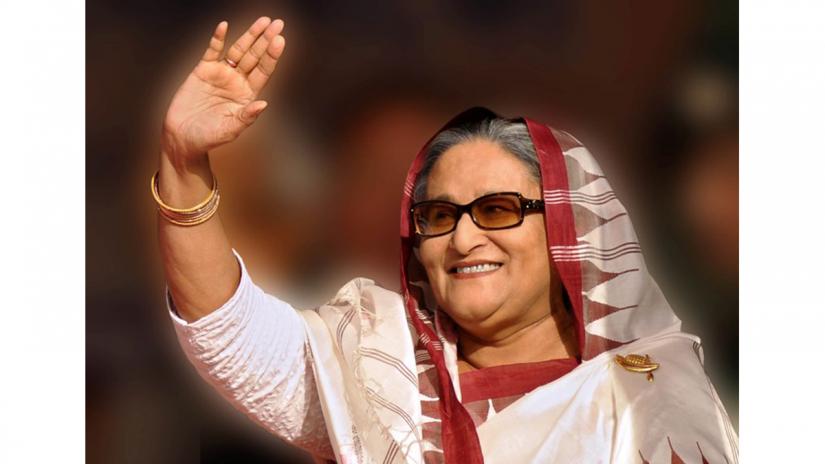 Delhi apparently seems to be indifferent over the upcoming general election in Bangladesh.
Delhi apparently seems to be indifferent over the upcoming general election in Bangladesh.
However, its envoy in Dhaka have been busy with ‘courtesy meetings’ with political party chiefs over the last few days and on Monday told the media that his country has no involvement in matters related to the polls slated for Dec 30.
Following a 10-year stable relation with Bangladesh, the Narendra Modi-led BJP administration undoubtedly wants to see Awami League chief Sheikh Hasina in the office once again.
“Sheikh Hasina is the most trusted and tested ally in South Asia, we cannot imagine anyone else in Dhaka,” an influential leader of the Rashtriya Swayamsevak Sangh (RSS), widely regarded as the parent organisation of BJP, told Bangla Tribune.
According to him, India is not at all concerned over the election as Hasina is ‘effectively’ dealing with the political situation.
“The election will be an all-inclusive one as Hasina opened talks with the opposition as well as accommodated the BNP to take part in the polls. The credit goes to Hasina,” he said.
Awami League, which is in power since 2009, won the last election in 2014 under controversial circumstances. The BNP had boycotted the election. Awami League won more than half the seats unopposed.
India and other global powers welcomed the Awami League’s win as a viable alternative to instability.
WHY INDIA WANTS HASINA IN POWER?
Over the last decade, New Delhi has invested heavily in building strong relations with Dhaka. The stakes were raised considerably during the four years of the Modi government. Bangladesh is today an important player in India’s ‘Act East’ agenda.
In the last four years since Narendra Modi became prime minister, India has committed close to $9 billion as credit and aid, and $2 billion for the Rampal power project on soft terms. This is over and above the $1 billion loan and aid offered in 2010.
A lot more effort has also gone into policy implementation. Barring the sole exception of Teesta water sharing; most of the pending issues were sorted out. The land boundary agreement is a reality. Passenger train and bus services have been expanded and the visa regime has been eased significantly. Electricity supplies are enhanced and will be doubled this year.
“No one had imagined that the relation between Bangladesh and India will touch the height it reached in the ten years of Sheikh Hasina administration,” a senior member of Modi’s Cabinet said.
Hasina’s also has contribution in the negotiation between the separatist leaders in Northeast and the Indian government, he added.
According to him, a ‘silent revolution’ has taken place in the realm of connectivity.
“India has invested billions in the energy and infrastructure as well as in other projects in Bangladesh, which may come under risk due to a regime change,” said the Indian minister.
New Delhi, however, is cautious that in no way it can be blamed of intervening in Bangladesh’s election.
“If intervene means rigging or flexing muscle for the preferable candidate, then India has never or will not in future intervene in the elections of any neighbours” says Pinak Ranjan Chakravarty, a former Indian ambassador to Bangladesh.
He, however, said that there’s nothing wrong to expect a friendly or preferable political party to assume office in a neighbouring country. “All countries want good relations with neighbours enabling trade and businesses.”
The zero use of the anti-India political rhetoric amid the Bangladesh election season has brought a respite to New Delhi, according to analysts.
“Transit for India was sensitive issue in the Bangladesh politics, but that’s not the case anymore. Even the Teesta water sharing, which India is yet to settle, has not emerged as a issue in the election,” said Sreeradha Dutt, of Delhi-based think tank Vivekananda International Foundation.


